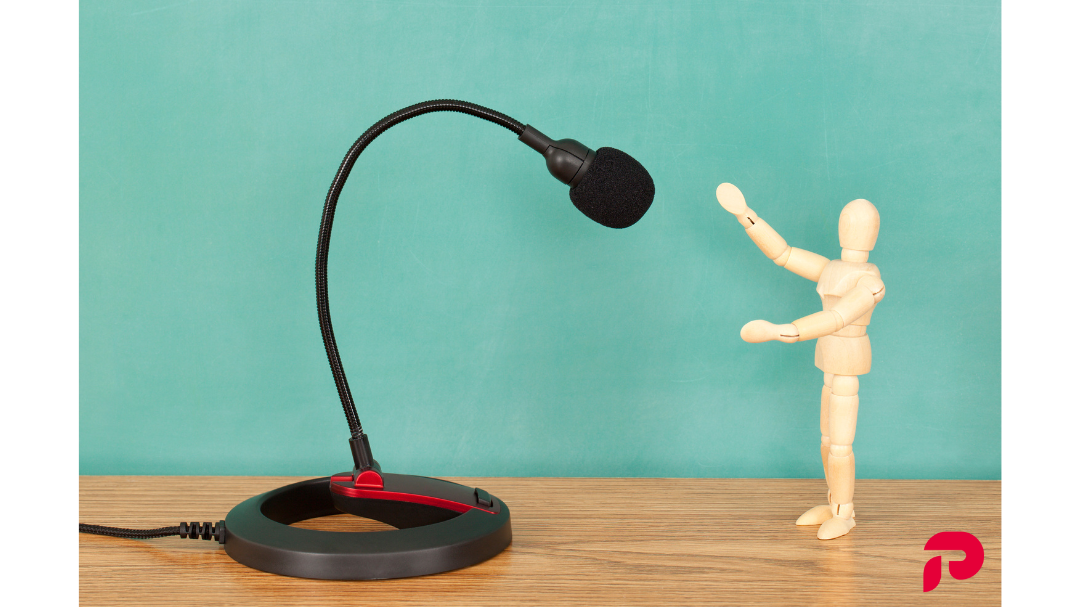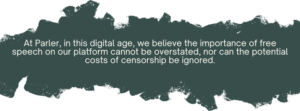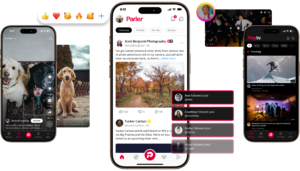Social media platforms have been considered modern public squares for over a decade, particularly since the late 2000s and early 2010s. During this time, platforms like Facebook, Twitter (now X), and YouTube gained widespread popularity and became central venues for public discourse, the exchange of ideas, debates, and community building. These platforms significantly influenced how information is shared and how people connect, discuss, and mobilize around various social, political, and cultural issues; however, they also became rife with controversies regarding free speech.
Social media platforms have faced criticism for censoring free speech in various ways, which typically revolve around content moderation practices. Here are some umbrella areas social media platforms have been accused of censoring free speech:
Content Removal
- Misinformation: Platforms like Facebook, Twitter, and YouTube remove posts that spread false information, particularly regarding elections, COVID-19, and vaccines.
- Hate Speech: Posts containing hate speech, harassment, or threats are often taken down.
- Community Guidelines Violations: Content that violates specific community standards or terms of service, such as explicit content or violent imagery, is removed.
Account Suspension/Banning
- Permanent Bans: High-profile bans, like that of former U.S. President Donald Trump, for repeated violations of platform policies.
- Temporary Suspensions: Users may be temporarily suspended for posting content that violates platform rules.
Shadow Banning
- Reduced Visibility: Posts or accounts are made less visible or discoverable without the user’s knowledge, effectively limiting their reach and engagement.
Algorithmic Bias
- Content Promotion/Demotion: Algorithms can prioritize or de-prioritize content, leading to certain viewpoints being more visible than others.
- Echo Chambers: Algorithms tend to show users content similar to what they already engage with, which can reinforce certain viewpoints and limit exposure to diverse perspectives.
Fact-Checking and Labeling
- Warnings and Labels: Posts deemed to contain false or misleading information may be flagged with warnings or fact-checking labels, which can influence how users perceive and interact with the content.
Government and Legal Pressure
- Compliance with Local Laws: Platforms often comply with government requests to remove content that violates local laws, which can sometimes suppress political dissent or controversial viewpoints.
- Transparency Reports: Companies may publish transparency reports detailing government requests for content removal, though these reports often highlight the tension between legal compliance and free speech concerns.
Third-Party Moderation
- Outsourcing Moderation: Platforms sometimes outsource content moderation to third-party companies, leading to inconsistent or overly broad enforcement of rules.
Criticisms and Controversies
- Subjectivity and Bias: Critics argue that content moderation decisions are often subjective and may reflect the biases of platform operators or moderators.
- Lack of Transparency: Users and critics often call for more transparency in how moderation decisions are made and how algorithms operate.
- Free Speech vs. Harm Reduction: There is an ongoing debate about the balance between protecting free speech and preventing harm, such as the spread of misinformation or incitement to violence.
Examples of Controversial Cases
- Political Content: Removal of political posts or accounts, particularly during election periods, has sparked debates about bias and censorship.
- Public Health Information: Platforms have removed or labeled posts related to COVID-19 vaccines, leading to accusations of censorship from those promoting alternative views.
- Social Movements: Content related to social movements like Black Lives Matter or climate activism sometimes faces moderation, leading to claims of censorship from activists.
Social media companies often defend their practices by emphasizing the need to create safe and welcoming environments for users, prevent harm, and comply with legal requirements. However, the debate over free speech and censorship on these platforms is complex and ongoing, reflecting broader societal tensions about the role and power of technology companies in public discourse.
Parler: Leaders in Free Speech
At Parler, in this digital age, we believe the importance of free speech on our platform cannot be overstated, nor can the potential costs of censorship be ignored. Censorship was a key driver in the Parler creation. The first Parler social media platform was released in August 2018 in response to growing concerns over censorship on mainstream social media platforms.
Parler lead the charge when relevant COVID information in a video was blocked. When other Silicon Valley giants decided to ban the video for allegedly violating their terms of service regarding “misinformation,” we made sure it was available on our platform so people could decide for themselves. When then Twitter closed the account of the New York Post for sharing information that was made public ahead of an important election, we made sure it was available.
Since its debut and now in its 2024 release and most technically advanced iteration, Parler continues to provide a space that champions free speech, where users can express their opinions without fear of being banned or censored. Today’s Parler has quickly gained popularity amongst those who felt their voices were being suppressed on other platforms like X and Facebook.
Community Engagement and Participation
Free speech on Parler is essential for community engagement and participation. Our platform provides a space where individuals can voice their opinions, criticize policies, and hold leaders accountable. The ability to freely express dissent is a cornerstone of democracy, allowing for a dynamic and responsive governance system.
Marketplace of Ideas
Parler serves as a vast marketplace of ideas, where diverse perspectives can be shared and debated. This diversity is crucial for the progress of society, as it allows for the testing of ideas and the synthesis of new ones. Free speech ensures that even unpopular or controversial opinions have a platform, which can lead to innovation and societal growth.
Personal Expression
For many, Parler is a space for personal expression. It allows individuals to share their thoughts, creativity, and experiences with a wider audience. This freedom of expression is vital for personal development and mental well-being, fostering a sense of belonging and community.
Parler will also soon launch PlayTV™, allowing users to create long form videos and short video Bursts™ to engage with the online community in new and exciting ways.
Informational Access and Education
Parler provides access to a wealth of knowledge and perspectives that might not be available through traditional media. Free speech ensures that this flow of information remains unrestricted, enabling individuals to educate themselves and make informed decisions.
Costs of Censorship
The importance of free speech on the Parler platform is multifaceted, encompassing democratic participation, the exchange of ideas, social movements, personal expression, and informational access. We as a platform and our some of our users have felt the significant costs of censorship including the stifling of dissent, erosion of trust, creation of echo chambers, impact on social movements, loss of personal freedom, and perpetuation of inequality.
The following is how some social media platforms continue to censor, what it costs, and why Parler is intentionally and deliberately operating differently:
Stifling of Dissent
Censorship on social media can stifle dissenting voices and undermine democratic processes. When certain viewpoints are suppressed, it creates a homogenized public discourse that can lead to authoritarianism. The absence of dissent means that power structures remain unchallenged, reducing accountability and transparency.
Erosion of Trust
Censorship can erode trust in social media platforms and the broader information ecosystem. Users may become skeptical of the information they encounter, questioning whether it has been manipulated or selectively presented. This mistrust can extend to institutions and authorities, undermining social cohesion and stability.
Creation of Echo Chambers
Censorship can contribute to the creation of echo chambers, where individuals are only exposed to information and opinions that reinforce their existing beliefs. This isolation from diverse perspectives can exacerbate polarization and hinder constructive dialogue. Echo chambers can also contribute to the spread of misinformation, as unchecked ideas gain traction within insular communities.
Impact on Social Movements
Social movements that rely on social media for organization and communication can be severely impacted by censorship. The suppression of activist voices can slow the momentum of movements and reduce their visibility. In extreme cases, it can lead to the persecution of activists and the dismantling of movements.
Loss of Personal Freedom
Censorship infringes on individuals’ rights to free expression and personal freedom. It can create a climate of fear, where people self-censor to avoid repercussions. This loss of freedom can stifle creativity, innovation, and the development of a vibrant public discourse.
Inequality and Discrimination
Censorship practices can disproportionately impact marginalized communities, whose voices are already underrepresented. When these voices are further suppressed, it perpetuates inequality and discrimination. Ensuring that all individuals have an equal opportunity to express themselves is crucial for social justice and equity.
The Parler Way
Amidst continuing, seemingly biased censorship actions by major tech companies such as Google and Facebook, Parler reaffirms its dedication to free speech and user empowerment. As a platform that played a pioneering role in defending free expression during the 2020 election, Parler remains a crucial space for unrestricted dialogue.
“People are increasingly frustrated with the censorship practices of major tech companies,” says Amy Robbins, National Spokesperson for Parler. “Our users have clearly voiced their discontent with being silenced on other platforms. Parler continues to champion free speech and stands as a vital refuge for those who wish to express their thoughts and opinions openly—without fear—and connect with others without interference.”
Empowering Users
Parler’s role in today’s digital landscape is more important than ever. Designed to support a wide range of viewpoints, Parler is committed to ensuring that all voices are heard.
Autonomy and Freedom
As censorship by major tech companies intensifies, standing up for personal freedom and free expression is crucial. Parler is committed to offering our members access to all the information they need, enabling them to make informed decisions and participate in meaningful discussions. As other platforms impose tighter controls, Parler remains a steadfast advocate for free speech. We invite those who are disillusioned with censorship and seeking a space where their voices are genuinely valued to join us.
Finding a balance between protecting free speech and ensuring a safe online environment is a complex but necessary task. By addressing these challenges thoughtfully, we can preserve the vital role of Parler as a revolutionized social media platform for free expression while minimizing the harms of harmful content and censorship.
In the spirit of transparency, take a moment to review our Community Guidelines. If you haven’t yet today, login to Parler or join the Parler community now and ‘Be Heard.’





